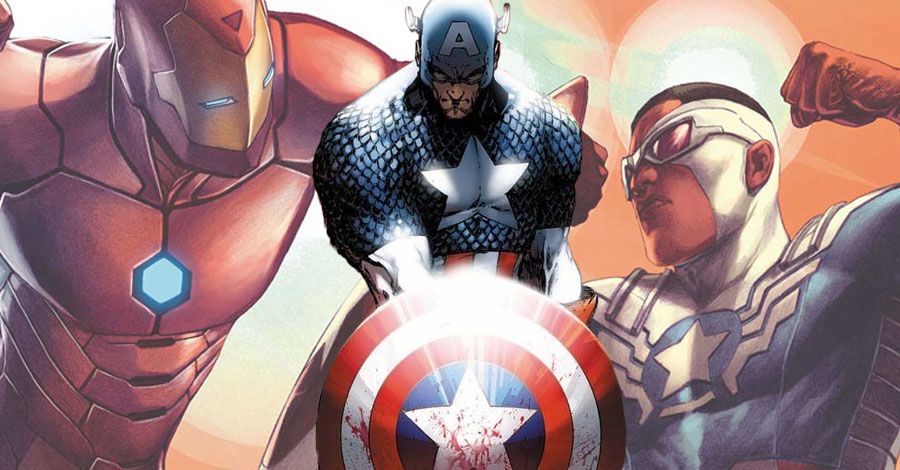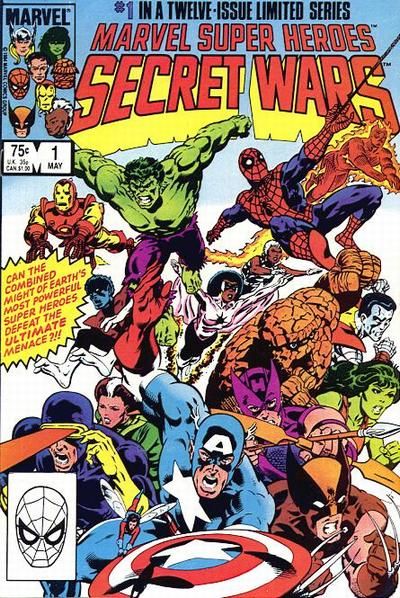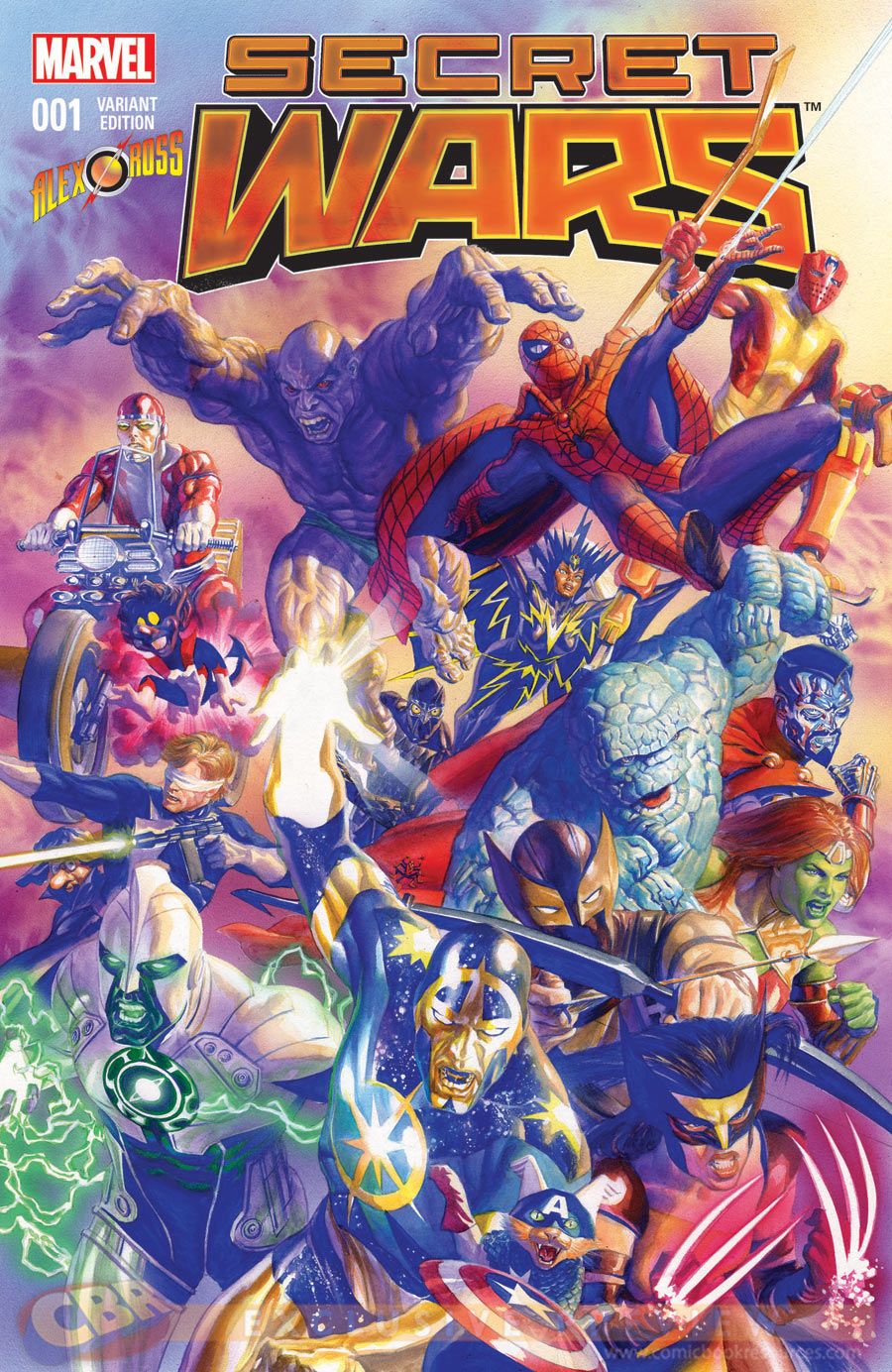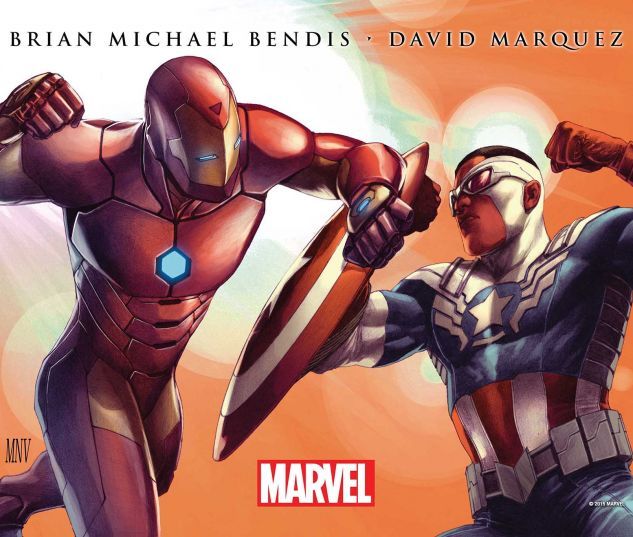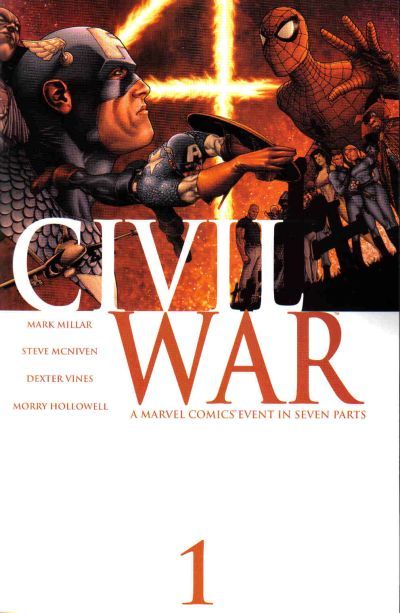"Marvel's doing that again?"
With the announcement of "Civil War II," a new event series coming in 2016 from writer Brian Michael Bendis and artist David Marquez, some Marvel readers are already dismissing the story as an "unnecessary remake" or "churned-out sequel." We live in a world filled with sequels, prequels, reboots and remakes; seeing the numeral "II" after the title of an event we've already read might elicit a few eye rolls. Yet all we know right now about "Civil War II" is the title, creative team, the involvement of Iron Man and the current Captain America, and Marvel's track record when it comes to sequel series.
More "Civil War II" Details Revealed: 'No One Is Safe,' Bendis Says
Marvel's event cycle appears to have entered into a new phase -- a phase of sequels. Starting with 2005's "House of M," Marvel actually refrained from diving back into their well of events for almost a decade. "Civil War" followed "House of M," and "Secret Invasion" came next in 2008. Then "Siege," "Fear Itself," "Avengers vs. X-Men," "Age of Ultron," "Infinity" and "Original Sin" stormed through the Marvel Universe, bringing us to 2014. That's nine major events, all with unique hooks, inciting incidents and aftermaths. Certain corners of the MU had event sequels (the cosmic books ran through a few "Annihilations," and Hulk engaged in two "World Wars"), but when it came to the superhero all-skate sessions, things remained sequel-free.
That has changed. This subtle shift in how Marvel treats events flew by mostly unnoticed in 2014 with "AXIS," an event that also went by the longer title "Avengers & X-Men: AXIS." Just two years prior, Marvel pitted their headlining teams against each other in "Avengers vs. X-Men" -- the title of which inverted the even earlier 1987 miniseries "X-Men vs. Avengers." "AXIS" wasn't publicized this way, but the full title allows it to be viewed as part of an unofficial trilogy of stories featuring the Avengers and the X-Men. Of course, "AXIS" and 2012's "AvX" had very little in common story wise -- and that's a point to keep in mind as you read ahead.
A shift from original events to sequels occurred in earnest with the announcement of this year's "Secret Wars," the biggest event Marvel's undertaken in possibly its entire history; it did, after all, see their entire line of comics paused for a whole summer while the event unfolded. But unlike "AXIS," which could only be viewed as a follow-up event in full name only, "Secret Wars" was explicitly marketed as a spiritual follow-up to the original 1985 event series. The fact that the original story was celebrating its 30th birthday was worked into the marketing of the new event. The original "Secret Wars" coloring book was re-released, and variant covers were produced in the style of the original "Secret Wars" line of action figures. Marvel wanted everyone to know that this was a sequel to that story. But, like "AXIS" and "AVX," 2015's "Secret Wars" actually has so far had very little in common with 1985's "Secret Wars."
Both series take place on a Battleworld, a patchwork planet made up of disparate chunks. In the original series, Battleworld was made up of parts of Earth; in Jonathan Hickman and Esad Ribic's series, Battleworld is composed of pieces from various alternate realities. The original series was centered on action and slugfests, while the new one involves intricate political maneuvering. Beyonder, the driving force behind the original story, has been supplanted in the new one by a cosmically enhanced Doctor Doom. If you swapped out key words like "Beyonder" and "Battleworld" for new ones, the current "Secret Wars" could have easily been marketed as a new event. In some ways, the Asgard-centric events "Siege" and "Fear Itself" were as closely tied thematically as both "Secret Wars" installments, but "Fear Itself" was not called "Siege II."
And that's worth thinking about when we power up our expectation and speculation machines (a.k.a. brains) in the months leading up to "Civil War II." So far, Marvel's event sequels have been sequels in name only and have not been treated as Mad Libs style retreads of the stories they're following up. They take a central theme, conceit or set of characters and run with it in a drastically different direction; they're more like "The Empire Strikes Back" than "Home Alone 2."
Marvel Studios, and most comic book movies in general, have been putting this practice to use for a long time now. The movies use certain titles from the comics ("Winter Soldier," "Age of Ultron," "Days of Future Past") for a myriad of reasons not associated with literally adapting that story. Maybe it wants the pre-awareness with readers, or it wants to be able to move trade paperbacks with that title, or the comic name just sounds cool; those reasons make more sense when you consider just how little in common the plot of Ed Brubaker and Steve Epting's "Winter Soldier" story has with the feature film bearing its name. The same especially holds true for "Avengers: Age of Ultron," as writer/director Joss Whedon had to embark on a mini press tour just to convince everyone that no, they weren't adapting the comic book.
Even the feature film "version" of "Civil War," which opens probably-not-coincidentally around when this sequel debuts, looks to have deviated greatly from the source material. For one thing, Bucky was barely involved in the "Civil War" comic, and he appears to be a key part of the movie. And the comic centered around taking off masks, whereas the film looks to be focused more on superhero accountability; though a Iron Man vs. Captain America conflict remains at the core.
So when it comes to "Civil War II," an event that we pretty much only know the title of, it's too early to assume we know what we're getting just because of the title. We know it'll have Tony Stark and Sam Wilson in it, but we don't know what they're fighting over, or if their specific conflict will even be at the heart of the series. Looking at Marvel's most recent events, odds are Bendis and Marquez will likely take one aspect of the original series and blow it out in a different direction. It makes more sense to look at two other, marketing-driven factors when speculating about "Civil War II": 2016 is the ten-year anniversary of "Civil War" and there's a movie coming out with that name in May 2016. This story may be one that could go by another name, but "Civil War II" might just make the most sense for reasons other than the story itself.

